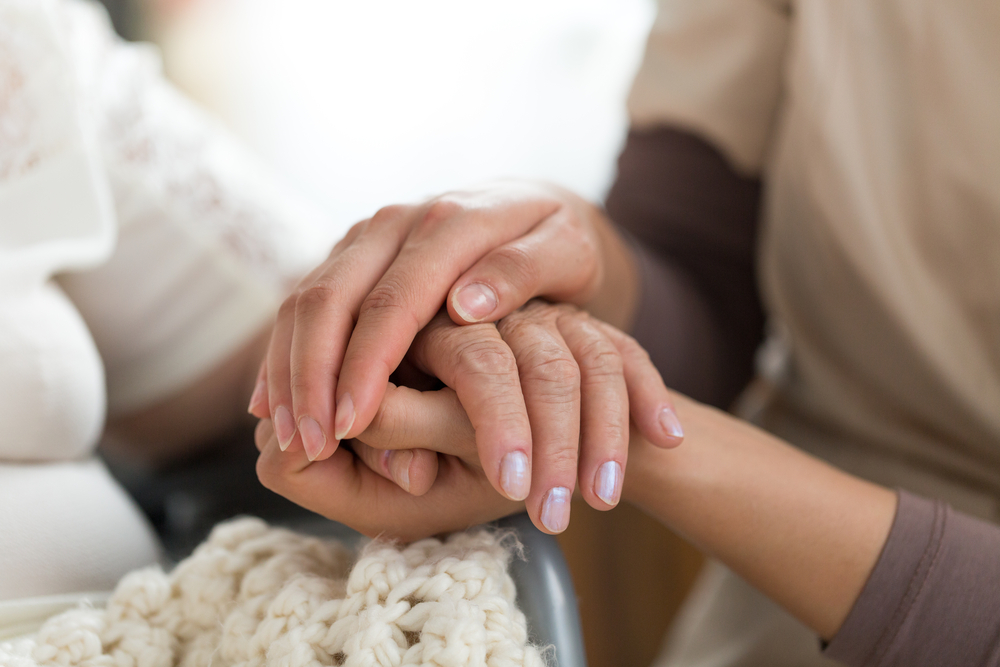Peruvian Family Sell Their Home to Afford Mother’s DBS Treatment

Dorys, a 66-year-old woman with Parkinson’s who lives in Peru, was able to be treated for her progressive disease through an extreme sacrifice: the sale of her family’s home.
Diagnosed 15 years earlier, the disease had rendered Dorys unable to do much of anything. Her physicians suggested a surgical treatment to improve her life, but she couldn’t afford it.
So, with no hesitation, family members agreed with Rosita Isabelle’s decision to sell the home. Dorys had the operation, and has since reclaimed a quality of life.
Christine Jeyachandran, a Parkinson’s World Congress ambassador and founder of Activate Liga Contra el Parkinson in Peru, is sharing what she calls a story of love, sacrifice, pain, and Parkinson’s. Her aim is both to illuminate Dorys’ case, and to educate people about the often drastic needs of Parkinson’s patients in Peru and elsewhere.
Jeyachandran, an Australian who lives in Peru and was diagnosed with early onset Parkinson’s at 37, has been promoting Dorys’ story ever since she heard of it, and stopped by to see Dorys and her family.
“Within minutes I was blown away by the family’s story when I visited them while on vacation,” she said in an Alianza Iberoamericana de Parkinson press release. “Despite not having my camera with me, I returned early from the beach to film the full story.”
In the video, Rosita Isabelle — Dorys’ daughter and her primary caregiver — talks of the family’s willingness to sell what had been intended to be her and her sibling’s inheritance, to pay for the surgery. All, except Dorys, fully supported the exchange.
“God only knows what we’ve been through, and what so many Parkinson’s patients go through,” Rosita Isabelle said, explaining that Dorys’ doctors failed to inform her children of the disease’s relentlessly progressive nature, or the dyskinesia that could result from long-term levodopa use.
As her condition worsened, Dorys was recommended for deep brain stimulation (DBS), a surgery to treat Parkinson’s by implanting a device to stimulate brain regions with electrical impulses generated by a battery-operated neurostimulator. DBS is used to treat motor symptoms such as tremor and rigidity, and is generally offered only after medications like levodopa fail to control symptoms.
“She no longer had control of her hands, nor her arms nor her legs,” said Dorys’ sister, Patricia, with whom the family now live. “Many times I asked God to take her away.”
Since the operation, Dorys has regained reasonable control over her body and has considerably less pain, the family reported in the emotional video, which is also available in Spanish.
DBS was “super expensive,” added her brother, Lucus, but “after all this process, after all this torture, she has improved a lot.”
The video’s narrator explains that, while Dorys’ case is extreme, it’s way too common for Parkinson’s patients in Peru and other low- to middle-income countries to struggle to afford adequate care and go underserved.
This need prompted Jeyachandran to open an association to help educate her community.
“Please don’t let Dorys’ story be invisible,” she said, asking for others to share the video using the hashtags #SellHouseSaveMother, #ParkinsonsDisease, #ParkinsonPeru, and #NoMoreSuffering. “Her life and the life of her family matter. We need to end Parkinson’s.”
Renzo Figari, a neurologist with a Parkinson’s specialty at University of Virginia Health, wrote on his Twitter account that no family should be subject to what Dorys’ family has gone through.
“I know we should find a cure for Parkinson’s, but this should never happen. Health is a right for everyone,” Figari said. “How did we end up as a society in a situation that a family has to sell their house to get the standard of care? It makes me so sad.”






